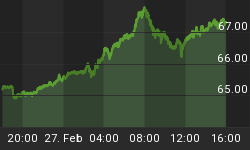Internet giants Google Inc. and Facebook Inc. have shouldered the majority of the blame for creating local news deserts by putting local news outlets, including beloved daily newspapers, out of business. Now, Google wants to right its wrongs by fixing the local news ecosystem and bringing journalism back from the dead. To that end, Google is launching the Local Experiments Project, which will directly fund dozens of local news startups beginning in three mid-sized American cities i.e. cities with a population less than half a million people.
The tech giant says it will not have any say in the editorial control of the sites but will instead leave partners with local news expertise to oversee the buildup process.
The Compass Experiment
For the pilot dubbed, ‘The Compass Experiment,’ Google will partner with McClatchy, a local news company and an ongoing Google partner with a strong technology background.
McClatchy will choose three cities for the launch of digital-only local news operations on multiple platforms.
Media have cited people familiar with the matter as saying that there might be people on the ground in the three cities, though no hiring plans have been announced yet.
So why target small cities? According to McClatchy CEO Craig Forman, it’s because they’ve been the hardest hit by the local news purge; but also because they have a stronger sense of community than the one can find in the bigger cities.
Google will use The Compass Experiment to build a local news model that it can use as a blueprint to roll out local news networks in other cities across the country and, eventually, globally.
Related: Only 5% of Bitcoin Transactions Are Real
The company says it plans to invest ‘many millions’ in the project, which might not be a stretch considering it has already pledged to invest $300 million in the Google News Initiative; a journalism-focused program designed to help publishers earn revenue and combat fake news.
Then again, Google has a penchant for throwing billions of dollars every year into moonshot projects, so what’s another $200-$300 million?
Big tech investing in local news
Google’s move might seem benevolent, but you can be sure there’s some quid pro quo somewhere.
After all, what better way to sell highly targeted (and profitable) ads than to a highly tuned-in audience? As Google senior vice president and chief business officer Philipp Schindler told journalists at the launch of Google News Initiative: “If you’re not successful, we’re not successful.”
Anyway, Google is not the only tech company looking to fix the local news conundrum. Major tech companies and moguls have been pouring millions of dollars into initiatives that support quality journalism even though many of their business models are directly responsible for fostering bad headlines and fake news.
Related: Gates And Bezos Back Artificial Intelligence Exploration Startup
In January, Google’s major rival, Facebook, matched Google’s new initiative after it announced that it was committing $300 million to news programs, content and partnerships over the next three years. Facebook’s project aims to support local journalists in their news-gathering efforts while helping them build long-term sustainable business models.
Microsoft Inc. has not yet committed dollars to local journalism but seems to agree with the idea. Microsoft President Brad Smith has told Axios: "I think we should all care about high-quality journalism. ... I keep hoping that we’re gonna see the journalism profession come out the other end. Remember, a decade ago, people were saying, 'Gee, there’s no future in high-quality audio visual entertainment.' It [was] being decimated by cable and then a new business model emerged."
Meanwhile, WordPress, the content management tech company owned by Automattic, has also announced plans to invest in The News Project, a startup that provides WordPress-based news and information publishing technologies that support small and mid-sized organizations.
While these developments are positive for the news industry, it’s doubtful whether they will be enough to mend the broken relationships between publishers and tech companies. Many big publishers resent the likes of Facebook, which they feel have driven away a lot of the revenue that used to fund high-quality newsrooms and allowed low-quality news to dominate their platforms.
In the final analysis, most of these initiatives likely are just as opportunistic as they are philanthropic.
By Alex Kimani for Safehaven.com
















